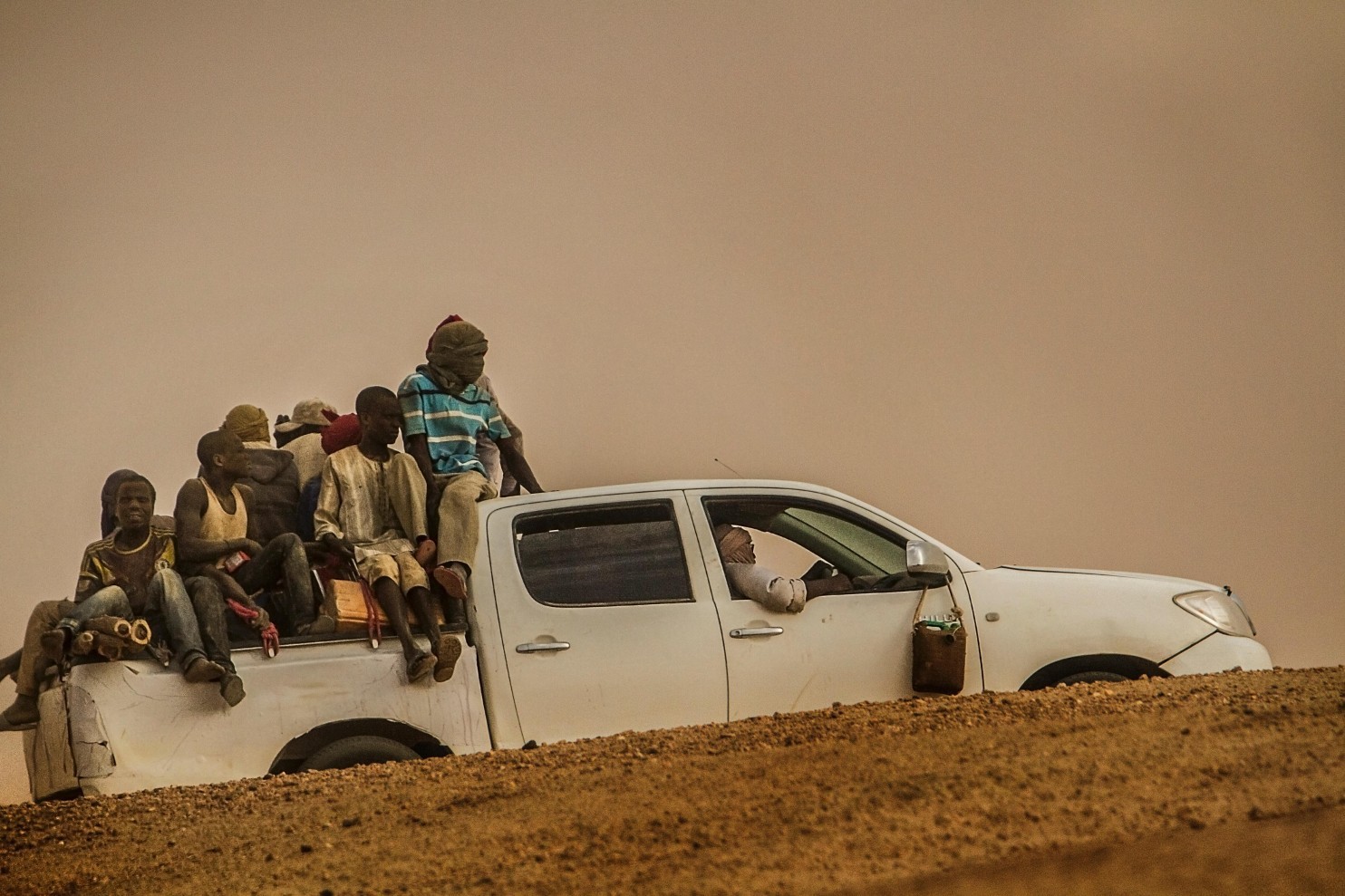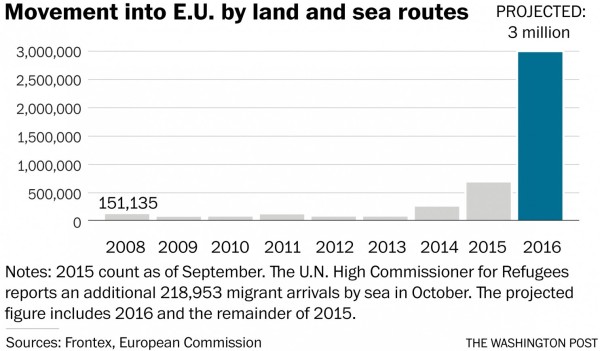PBS: Escaping Eritrea … [Read More...] about ካብ ውሽጢ ቤት ማእሰርታት ኤርትራ
E.U. launches $2 billion plan to keep Africans from migrating

NAIROBI — The European Union on Wednesday announced the start of a $2 billion initiative to curb illegal migration from Africa, an ambitious program that aims to tackle the root causes of a historic flight of Africans to Europe.
The first $325 million in projects introduced Wednesday include efforts to increase employment in the migrants’ home countries and to tackle human trafficking in places such as Ethiopia and Somalia.
Much of Europe’s attention has been focused on the nearly 800,000 Syrian, Iraqi and other asylum-seekers who have entered Europe this year via Greece. But the number of people from sub-Saharan Africa crossing the Mediterranean has jumped, too: About 130,000 made the journey in 2015, compared with about 70,000 last year, according to the International Organization for Migration. They were driven from their homes by poverty and conflict, and attracted by the opportunities to reach Italy from nearby Libya, whose Mediterranean coast has been virtually unpatrolled since the 2011 overthrow of Moammar Gaddafi’s government.
[European Union predicts 3 million more migrants by end of next year]
The $2 billion E.U. Emergency Trust Fund for Africa was created last month to “address migration, mobility and forced displacement through concrete action,” said the E.U.’s commissioner for international cooperation and development, Neven Mimica.
“If you’re looking at changing the way Africa’s economies work, [$2 billion] isn’t going to go very far,” said Tuesday Reitano, head of the secretariat of the Geneva-based Global Initiative Against Transnational Organized Crime.
Few details of the new projects were available Wednesday. But according to an E.U. statement, they include a plan to develop employment opportunities in regions of Ethiopia from which migrants come; an effort to help Somali refugees return to parts of their country that are stable; and an initiative to combat migrant smuggling in the Horn of Africa.
In recent months, the E.U. has debated attacking smugglers’ ships and conducting intelligence-led operations in places such as Niger, on the migrant trail to Libya, but such plans have rarely been enacted. Efforts to improve law enforcement in key cities along that trail have also had limited success. In Agadez, Niger, for example, a Post reporter found this summer that a military vehicle was leading a convoy of smugglers and migrants into the Sahara once a week.
[A smuggler’s haven in the Sahara]
Many analysts say that the surge in migrants from Africa reflects the continent’s most entrenched problems — including civil wars and economies that have not created enough jobs for a rapidly growing population.
Under the E.U. plan, 23 African countries deemed the “most fragile and those most affected by migration” will be eligible for the funds, which would be disbursed through 2020. Eritrea was included on the list, despite calls from activists to withhold funding because of its poor human-rights record.
“The fast-tracked approval of today’s new projects proves that this is not business as usual,” Mimica said.
There was no sign that the E.U. is willing to dramatically expand the number of work visas it offers to sub-Saharan Africans — something sought by many officials on the continent who see their compatriots taking risky, expensive journeys because the legal route is nearly inaccessible. Nearly 3,000 people have died crossing from Libya to Europe this year, and most of them are thought to be sub-Saharan Africans.
The E.U. has said it will expand the number of university scholarships it offers to sub-Saharan Africans, but that there would likely be a limited increase in the total number of visas.
Other officials in Africa called the trust fund a welcome start, but highlighted just how massive the need is in places where asylum seekers are making the choice to leave for Europe or elsewhere.
“To meet only the most basic needs of displaced persons in North Nigeria would require $1 per person per day — a staggering $2 million in total per day,” wrote Bukola Saraki, president of the Nigerian Senate, in the Financial Times this month. He added that the cost of rebuilding northwestern Borno state, which has been ravaged by radical Islamist group Boko Haram, has been put at $1 billion.
Read more:
A Libyan militia confronts the world’s migrant crisis
Tiny Gambia has a big export: Migrants desperate to reach Europe
At first stop on Europe’s refugee trail, a 21st-century Ellis Island is born
